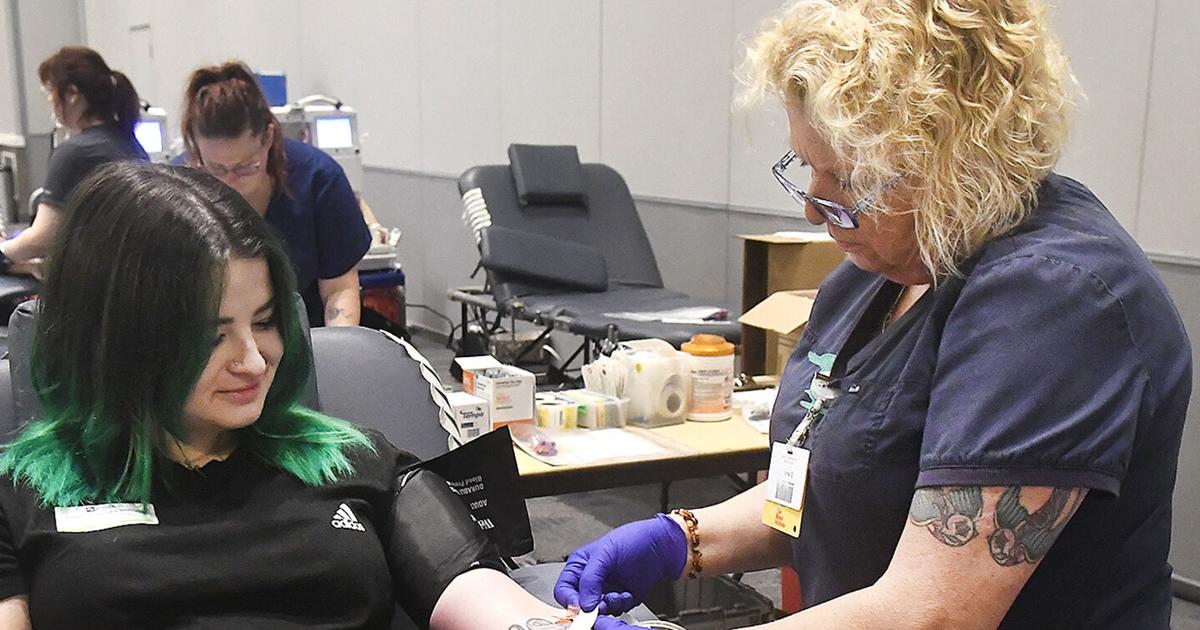Blood
Enid Community Challenge Blood Drive combats shortage
#inform-video-player-1 .inform-embed { margin-top: 10px; margin-bottom: 20px; }
#inform-video-player-2 .inform-embed { margin-top: 10px; margin-bottom: 20px; }
ENID, Okla. — Stride Bank Center buzzed with activity throughout the day Tuesday, July 25, 2023, but not because of a concert or a banquet.
The 16th annual Enid Community Challenge Blood Drive, sponsored by Our Blood Institute (OBI), invited Enid residents to give back to their community.
And they did.
“I have to say that I was really encouraged with this blood drive, because I saw many first-time young donors come and donate,” Dr. Tina Ire, chief medical officer at OBI, said.
The blood drive challenged local civic organizations to compete for the most blood donations. Junior Welfare League, Enid AM Too AMBUCS, Enid Noon AMBUCS, Enid AM AMBUCS and North Enid Lions Club accepted the challenge.
In the U.S., someone needs a blood transfusion every three seconds.
Oklahoma is currently under red alert, meaning blood types in highest demand are in low supply.
“We are under, I’d say, the day supply is four days right now,” Jillian Tebow, of OBI, said. “When we go into red alert we like to have like a four- to five-day supply constantly. So, we’re under a four-day supply.”
O negative and O positive are the two most common blood types, placing them at the top of the demand list for donations.
The shortage extends across the country. Only 5% of the country’s eligible donors give blood.
Regardless of the amount of donations, demand remains constant.
“So, every drop really counts, you know,” Ire said. “Every individual that donates from different demographic groups, like African American, does make a significant difference in our sickle cell disease population, you know, who actually get transfusions very frequently, more than your trauma victim or other people might have an emergency. But you know, the need for blood is constant. There is no blood substitute. So, what happens here makes a huge difference.”
According to OBI, one blood transfusion can save up to three lives. The average adult has 10 pints of blood, and one pint of blood is usually taken during a donation.
The top donating organization will be awarded $800, second place gets $500 and third place gets $300.
#inform-video-player-3 .inform-embed { margin-top: 10px; margin-bottom: 20px; }

